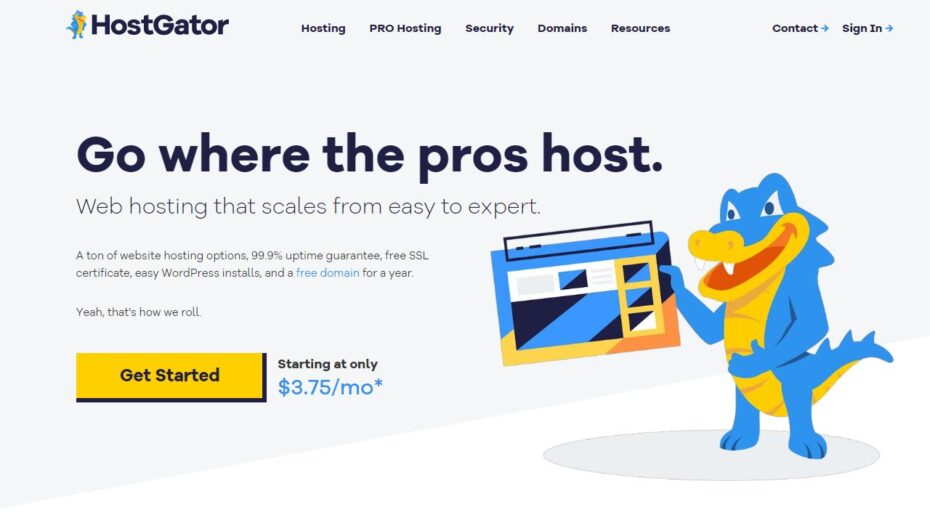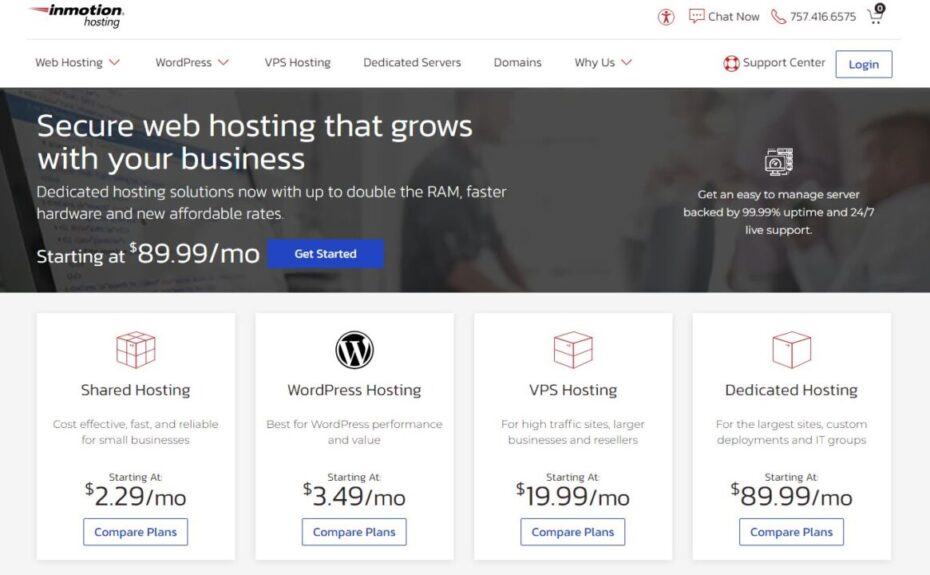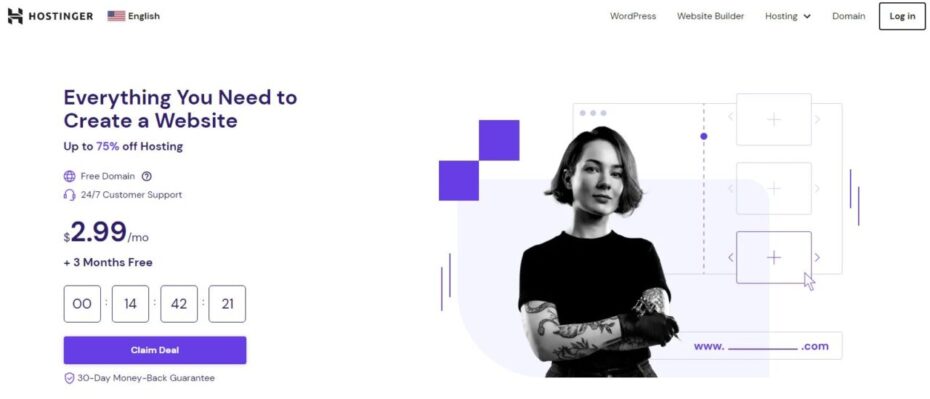Table of Contents
Have you ever found yourself wondering, “What is the best blogging platform for me?” or perhaps “How do I choose a platform that caters to my unique needs as a blogger?” You’re not alone. Choosing the right blogging platform is crucial to the success of your online presence, as it affects everything from how your content is presented to how it’s discovered by readers. In my experience, the journey to finding the perfect platform can be both exciting and daunting.
From my perspective, the quest for the best blogging platform is not just about comparing features or pricing; it’s about understanding the nuances that make each platform uniquely suited to different kinds of content creators. Whether you’re a beginner looking to dip your toes into the blogging world or a seasoned blogger aiming to maximize your reach, this guide is designed to answer your burning questions and steer you in the right direction.
Most importantly, my recommendation is to consider not only what you need now but also what you might need as your blog grows. Here’s how you can start unraveling the multitude of options to discover the blogging platform that not only meets your current requirements but also scales with your aspirations.
Web Hosting Recommendations
 Hostgator
|  Inmotion
|  Hostinger
|
5 User Favorites: A Deep Dive into Today’s Top Picks
Did you know that choosing the right blogging platform can significantly influence your blog’s success? With numerous options available, how do you determine which is the best blogging platform for your specific needs? In my view, it’s about finding a balance between user-friendliness, customization options, and the ability to grow with your audience. Today, we’ll explore the top five user-favorite blogging platforms, diving deep into what makes each stand out.
From my perspective, each platform caters to different types of bloggers, from beginners to seasoned professionals. We will look into the unique features, ease of use, and scalability of platforms like WordPress, Squarespace, Wix, Medium, and Ghost. Most importantly, I recommend considering not just where your blog is today but where you want it to be in the future. Here’s how you can start evaluating these top picks to find the best fit for your blogging journey.
1. WordPress: Why 43% of the Web Swears By It
Remarkably, WordPress powers 43% of all websites on the internet, a testament to its widespread popularity and versatility. Have you ever wondered why such a significant portion of the web relies on WordPress for their online presence? From my perspective, WordPress stands out due to its unparalleled customization options and a vast ecosystem of themes and plugins, which cater to virtually any need a blogger could have.
In my experience, WordPress is not just a blogging platform; it’s a comprehensive content management system that scales from small personal blogs to large corporate websites. Its open-source nature invites endless flexibility and control over your site’s design, functionality, and future growth.
Most importantly, WordPress’s extensive community support and resources mean that help and inspiration are always just a search away. If you ask me, for those looking to take their blogging seriously, WordPress offers a robust foundation that can support your blog as it grows and evolves over time.
2. Squarespace: Crafting Stunning Blogs with Ease
“Simplicity is the ultimate sophistication.” – Leonardo da Vinci. This quote perfectly encapsulates the essence of Squarespace as a blogging platform. Squarespace makes it incredibly simple for bloggers to craft stunning, professional-looking blogs with ease, combining sophistication with user-friendly design tools. Here’s why I strongly believe Squarespace stands out:
- User-Friendly Interface: Squarespace offers a sleek, intuitive interface that makes website creation accessible to bloggers of all skill levels. From my perspective, this ease of use does not sacrifice power or functionality.
- Beautiful Design Templates: With a selection of award-winning templates, Squarespace allows you to start with a strong, visually appealing foundation. Each template is fully customizable, ensuring your blog looks exactly the way you envision.
- Built-in SEO Tools: Squarespace includes essential SEO tools to help your blog rank higher in search engine results. According to my experience, these tools are straightforward and can significantly impact your blog’s visibility.
- Responsive Design: Every Squarespace template is responsive, meaning your blog will look great on any device. From my point of view, this is crucial for reaching a wider audience in today’s mobile-first world.
3. Wix: The Power of Drag-and-Drop Blogging
“The best way to predict the future is to invent it.” – Alan Kay. Wix takes this philosophy to heart, offering a powerful drag-and-drop blogging platform that empowers users to create custom blogs without needing to code. Here’s how you can start leveraging Wix’s capabilities:
- Drag-and-Drop Editor: Wix’s editor is famously user-friendly, allowing you to position elements anywhere on your page. In my view, this freedom enables a level of customization that’s unparalleled in the blogging world.
- Wide Range of Features: From social media integration to e-commerce capabilities, Wix supports a diverse array of blogging needs. My recommendation is to explore Wix’s App Market for additional functionalities to enhance your blog.
- Template Variety: With hundreds of templates available, Wix caters to every niche and style. In my estimation, this variety ensures that every blogger finds a design that resonates with their personal brand.
- SEO and Mobile Optimization: Wix provides built-in SEO tools that I believe are essential for increasing your blog’s online visibility. Furthermore, its mobile optimization ensures your blog is accessible on all devices, a must-have in today’s digital age.
4. Medium: Amplifying Your Voice Among Millions
When comparing Medium to traditional blogging platforms, it stands out for its vast, built-in audience. This platform offers a unique opportunity for bloggers to amplify their voice among millions, making it less about building from scratch and more about engaging with an existing community. Here’s my perspective on why Medium could be a game-changer for your blogging journey:
- Engaged Audience: Medium hosts a diverse and engaged readership eager to consume content across a wide range of topics. From my point of view, this presents an unparalleled opportunity to gain visibility quickly.
- Simplified Publishing Process: Medium’s user-friendly interface focuses on content rather than design, allowing you to publish stories easily. According to my experience, this simplicity helps maintain your focus on writing quality content.
- SEO Benefits: Despite its simplicity, Medium articles often rank well in search engine results. My recommendation is to leverage Medium’s authority to boost your online visibility, especially if you’re new to blogging.
- Networking Opportunities: Being a part of Medium means being part of a community. In my estimation, the platform’s social features, like responses and claps, provide valuable feedback and networking opportunities.
5. Ghost: Speed and Simplicity for Serious Bloggers
Ghost and other content management systems differ markedly in their approach to blogging, with Ghost emphasizing speed, simplicity, and a distraction-free writing experience. It’s tailored for bloggers and content creators who want efficiency without sacrificing the power of a full-featured platform. Here’s why I believe Ghost is a strong choice for serious bloggers:
- Fast and Lightweight: Ghost is renowned for its speed, both in page loading times and in the publishing process. From my perspective, this is crucial for both user experience and SEO.
- Focus on Content: With its clean, intuitive interface, Ghost prioritizes the writing experience. In my opinion, this makes it easier for bloggers to produce high-quality content without distractions.
- Built-in SEO and Social Tools: Ghost comes with advanced SEO settings and social media integration out of the box. My suggestion is to take full advantage of these features to enhance your blog’s reach and search engine ranking.
- Membership and Subscription Features: For bloggers looking to monetize their content, Ghost offers integrated membership and subscription options. In my view, this is a game-changer for creating a sustainable income from your blog.
Essential Features of the Best Blogging Platforms
Surprisingly, when it comes to blogging, it’s not just the quality of your content that matters but also the platform behind it. The best blogging platforms offer a mix of essential features that can make or break your blog’s success.
Here, we delve into what these critical features are and why they matter. From customization capabilities to SEO tools and user experience considerations, understanding these aspects can significantly enhance your blog’s potential.
Customization Capabilities: Tailor Your Blog’s Look
The assumption that all blogging platforms offer similar customization options is a common misconception. The truth lies in the subtleties of how platforms allow you to tailor your blog’s appearance, which is crucial for carving out a unique identity in the digital world.
The ability to customize your blog, from its overall theme to the minutiae of its layout, fonts, and color schemes, offers a canvas to express your brand’s voice and visual identity.
In my experience, the depth of customization available can significantly influence a blog’s ability to stand out and resonate with its intended audience. Platforms that offer extensive customization tools not only empower bloggers to align their site with their vision but also contribute to a more cohesive and engaging user experience.
SEO Tools: Climbing the Ladder of Online Visibility
The importance of SEO tools in blogging can often catch newcomers by surprise. Effective SEO features are not just an add-on but a necessity for any blog aiming to reach its target audience through higher search engine rankings. These tools, when used correctly, can dramatically improve your blog’s visibility, driving organic traffic and engaging readers who are actively searching for content in your niche.
The right blogging platform will offer integrated SEO tools that simplify the optimization process for your posts, images, and overall site structure. This ease of optimization is crucial for bloggers who wish to focus on content creation without becoming bogged down by the technicalities of SEO.
My recommendation is to prioritize platforms that provide comprehensive SEO support, thereby ensuring that your content reaches its maximum potential audience.
User Experience: Keeping Your Audience Engaged
The final, and perhaps most crucial, feature of the best blogging platforms is the emphasis on user experience (UX). A platform that offers a seamless, intuitive browsing experience for your audience can significantly impact the time spent on your site and the likelihood of return visits. This includes fast loading times, mobile responsiveness, and easy navigation, all of which contribute to a positive perception of your blog.
From my perspective, a platform that prioritizes UX not only benefits your readers but also supports your SEO efforts, as search engines increasingly reward sites that provide a high-quality user experience. Investing in a platform that values and enhances user experience is, in my view, non-negotiable for bloggers aiming for long-term success and reader engagement.
Community and Support: The Backbone of Success
“Alone we can do so little; together we can do so much.” – Helen Keller. This sentiment rings especially true in the digital realm, where the best blogging platforms are distinguished not only by their features but also by the strength of their community and support systems.
A supportive community and efficient customer support are the backbone of a blogger’s success, providing the necessary resources, advice, and encouragement to thrive in an ever-competitive landscape.
The Role of Community Forums in Blogging Success
Community forums are more than just a feature; they are the lifeblood of knowledge sharing and innovation in the blogging world. From my experience, these forums act as a treasure trove of insights, where bloggers from diverse niches come together to share their successes, challenges, and solutions.
This collaborative environment fosters a sense of belonging and support that is invaluable, especially for those just starting their blogging journey. It’s in these forums that you can learn the nuances of SEO, content creation, and audience engagement from real user experiences, making them an indispensable resource.
Navigating through community forums, one quickly realizes the depth of collective wisdom available. Whether it’s troubleshooting a technical issue or seeking advice on content strategies, the answers lie within the community. I strongly believe that active participation in these forums not only accelerates your learning curve but also enhances your visibility within the blogging ecosystem.
My recommendation for new bloggers is to immerse themselves in these forums, ask questions, and contribute their own insights. It’s through this engagement that you can truly harness the power of community to fuel your blogging success.
Navigating Customer Support: Real User Insights
Effective customer support is a critical aspect of the best blogging platforms, acting as a safety net for bloggers when they encounter technical hurdles or need guidance on platform-specific features. Speaking personally, there’s immense reassurance in knowing that expert help is just an inquiry away. The responsiveness and expertise of customer support can significantly impact your blogging experience, reducing downtime and frustration.
From my perspective, the quality of customer support can be a deal-breaker when choosing a blogging platform. Real user insights often highlight the efficiency of support teams in resolving issues, their approachability, and the clarity of their guidance. I recommend prospective bloggers to look for platforms that boast positive reviews about their customer support, as it’s a strong indicator of the platform’s commitment to its user base.
Future-Proofing Your Blog: Scalability and Flexibility
In today’s rapidly evolving digital landscape, the longevity of your blog hinges on its ability to grow and adapt over time. Future-proofing your blog isn’t just a strategy; it’s a necessity for ensuring that your platform can withstand the test of time, technological advancements, and shifts in reader behavior.
Opting for a blogging platform that prioritizes scalability and flexibility means you’re setting up your digital presence not just for immediate success but for sustainable growth.
Scaling Your Blog with Growing Traffic
When envisioning the future of your blog, imagine a time when your content resonates with thousands, if not millions, of readers worldwide. At this juncture, the scalability of your chosen blogging platform becomes critical. A scalable platform effortlessly manages increased traffic, ensuring that your blog remains accessible and responsive, regardless of how many visitors it attracts.
This capability hinges on robust infrastructure, such as cloud hosting solutions and content delivery networks (CDNs), designed to distribute the load and improve site performance globally. In my view, selecting a platform that can scale means you’re preparing for success before it even arrives.
Furthermore, scalability extends beyond just handling traffic. It includes the ability to integrate new features, functionalities, and services that enhance your blog’s appeal and usability. As your audience grows, so too will their expectations for rich content, interactive elements, and seamless user experiences.
The best blogging platforms are those that offer an ecosystem of plugins, tools, and integrations, allowing your blog to evolve and meet these increasing demands. My recommendation is to look for platforms that not only boast of scalability but actively invest in it, ensuring they remain on the cutting edge of technology and user experience.
Adapting to Change: How Flexible Platforms Win
Flexibility in a blogging platform is just as crucial as scalability. The digital realm is characterized by constant change—be it in SEO algorithms, social media trends, or audience preferences. A flexible blogging platform allows you to quickly adapt to these changes, ensuring that your blog remains relevant, engaging, and visible.
This includes ease of making design updates, implementing SEO adjustments, and integrating new social media functionalities. From my perspective, flexibility means your blog can pivot as needed, without the need for a complete overhaul or migration to a new platform.
Moreover, a platform’s flexibility is often reflected in its customization options. The ability to personalize your blog’s design, layout, and functionality ensures that it continues to reflect your brand and message as they evolve. In my experience, blogs that stay true to their unique voice and style, while adapting to industry trends and technological advancements, are the ones that thrive in the long term.
Lastly, consider the platform’s commitment to innovation and updates. A platform that regularly updates its features, security measures, and performance optimizations is one that values flexibility and future-readiness.
In my honest opinion, choosing a platform that views change as an opportunity rather than a challenge will significantly contribute to the longevity and success of your blog. My advice? Opt for a platform that promises not just to meet your current needs but to grow and adapt with you over time.
Making an Informed Choice for Long-Term Success
When it comes to choosing the best blogging platform for your needs, making an informed decision is paramount for ensuring long-term success. The landscape of blogging platforms is vast, each offering unique features, benefits, and challenges. It’s essential to weigh these aspects carefully, considering not only where your blog stands today but where you envision it in the future.
First and foremost, consider scalability and flexibility. I strongly believe that the best blogging platform for any creator is one that can grow with their ambitions. Whether you’re starting with a personal blog and plan to expand into a full-fledged digital magazine or ecommerce site, the platform you choose should accommodate this growth without requiring a complete overhaul of your digital presence.
Moreover, community support and customer service are crucial elements that often go overlooked. In my experience, a supportive community and accessible, knowledgeable customer support can make a world of difference, especially when you encounter technical issues or need guidance on optimizing your blog.
From my perspective, platforms with active user forums, comprehensive help centers, and responsive customer service teams provide invaluable resources for bloggers at all levels of expertise.
Lastly, consider the specific features and tools that align with your blogging goals. For SEO, look for platforms that offer robust optimization tools to help your content rank well in search engines. For user engagement, prioritize platforms with intuitive design options, interactive elements, and mobile responsiveness.
In my honest opinion, the right blend of these features, tailored to your unique needs and audience, will set the foundation for a successful and sustainable blogging journey. My recommendation is to invest time in research, take advantage of free trials when available, and choose a platform that feels like the right partner in your blogging adventure.
Frequently Asked Questions (FAQ)
What is the best blogging platform for beginners?
For beginners, WordPress and Wix are top choices due to their user-friendly interfaces. WordPress offers extensive customization options with numerous themes and plugins, while Wix provides a drag-and-drop editor that simplifies the website creation process. Both platforms offer ample support and scalability for new bloggers.
How does WordPress compare to Squarespace?
WordPress is highly flexible with its open-source nature, offering vast customization options through themes and plugins. Squarespace, on the other hand, is more streamlined with built-in features that focus on ease of use and design. Squarespace might appeal more to those who prefer an all-in-one solution with less technical involvement.
Is Medium a good platform for professional blogging?
Medium is excellent for bloggers looking to reach a built-in audience quickly. It simplifies the publishing process, allowing writers to focus on content. However, it offers limited customization compared to platforms like WordPress or Squarespace, making it less ideal for those looking to build a unique brand.
What are the advantages of using Ghost for blogging?
Ghost is designed for speed and simplicity, making it an excellent choice for serious bloggers focused on content. It offers a clean writing interface, built-in SEO tools, and membership features for monetization, making it a powerful platform for professional content creators.
Can I monetize my blog on Wix?
Yes, Wix supports monetization through various features, including e-commerce tools, membership areas, and ad integration. Its App Market also offers plugins that enhance monetization options, making it suitable for bloggers looking to generate revenue.
What SEO tools are available on WordPress?
WordPress offers extensive SEO capabilities through plugins like Yoast SEO and All in One SEO Pack. These tools help optimize your blog posts, manage meta descriptions, and improve site structure, contributing to better search engine rankings.
How customizable are Squarespace templates?
Squarespace templates are highly customizable, allowing users to adjust layouts, fonts, colors, and more. While it offers fewer customization options than WordPress, it provides enough flexibility to create a unique and visually appealing blog without requiring technical skills.
Is Ghost better for SEO compared to other platforms?
Ghost offers strong SEO capabilities with its built-in features. It focuses on performance, providing fast load times and clean code, which are critical factors for SEO. While WordPress offers more extensive SEO plugins, Ghost’s out-of-the-box SEO is robust for most bloggers’ needs.
Which platform is best for scalability as my blog grows?
WordPress is the most scalable option, supporting everything from small personal blogs to large enterprise sites. Its vast ecosystem of plugins and themes, along with its strong community support, makes it adaptable to growing needs. Ghost and Squarespace also offer good scalability but with more specific use cases.
How do I choose the best blogging platform for my needs?
Consider your blogging goals, technical skills, and long-term growth plans. If you need extensive customization and control, WordPress is ideal. For ease of use with beautiful design templates, Squarespace or Wix might be better. For content-focused blogging with minimal distractions, Ghost is a strong choice, while Medium is best for immediate audience engagement.






